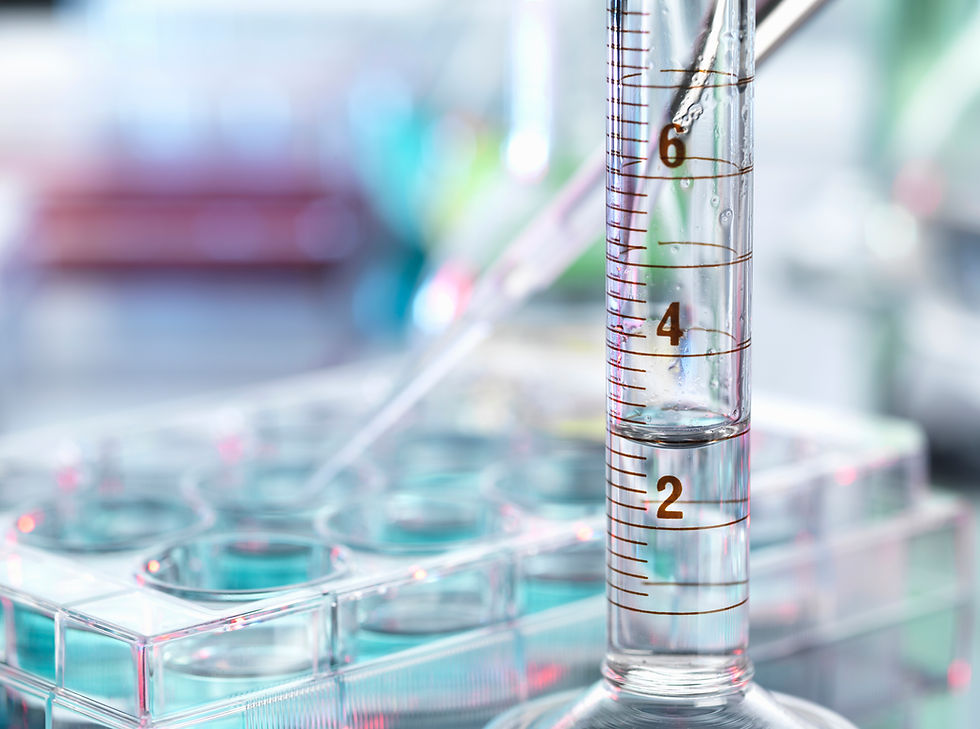All About Clinical Trials: Their importance in the advancement of breast cancer treatment and who should consider participating.
- madelynrosem
- Sep 15, 2024
- 4 min read
Updated: Sep 21, 2024
What are Clinical Trials?
Clinical Trials are medical studies that evaluate the effectiveness of new treatments and their effects on health outcomes.
Phases of Clinical Trials
Phase 1: Safety: These clinical trials involve a small number of people and evaluate the safety and correct dosage of a new drug/treatment or a combination of existing drugs/treatments.
Phase 1 trials usually consist of a very small number of participants.
- The first few people to receive the treatment will get a very low dose, and it will be slowly increased.
In oncology, phase 1 trials often involve those who have exhausted all treatment options for their type of breast cancer.
Although Phase 1 trials are the riskiest phase, new and innovative treatments such as immunotherapies and targeted therapies have caused phase 1 clinical trials to have much better outcomes/to be much more beneficial to patients than they used to be.
Phase 2: Effectiveness in a particular cancer
Phase two clinical trials focus on the effectiveness of a new drug/treatment in a particular type of breast cancer.
Phase 2 trials usually consist of a small number of people (25-100), all with the same kind of breast cancer.
If the drug benefit enough people with side effects that aren't too severe phase three clinical trials will be conducted.
Phase 3: Comparison to Standard of Care
Phase three clinical trials compare the new treatment with the current treatment that is the standard of care.
Stage three trials are large and randomized, and they test the safety and effectiveness of the new treatment in comparison to the currently available treatment to determine which is better.
If the Phase 3 trial goes well (the new treatment yields better results than the current), the new treatment will be submitted for review to the Food and Drug Administration (FDA) to get approved for public use.
Phase 4 Clinical Trials: Long Term Effectiveness and Side Effects
Phase 4 clinical trials are conducted with drugs that have already been approved by the FDA. Phase 4 trials aren't done on all drugs (some stop at Phase 3).
Because the drugs have already been approved, Phase 4 trials are the safest clinical trial to participate in and involve thousands of people.
Because the drugs in Phase 4 clinical trials are usually the new standard of care or becoming the new standard of care, in participating in these studies you often receive the treatment you would receive anyways while benefiting breast cancer research.
Safety Measures in Clinical Trials
All phases of clinical trials have organizations that monitor the process to ensure that they are conducted accurately and are as safe as possible for those participating.
-The Institutional Review Board (IRB) ensures that all participants are being treated humanely and ensures that the projected benefit of the treatment is worth the potential risk before the study begins. If the risk is deemed too great, the board will cancel the study or make modifications.
-The Data Safety Monitoring Board monitors the entire clinical trial. If the new treatment has too many side effects, the board will stop the trial and switch those on the new treatment over to the older treatment. Furthermore, if either the old or new treatment is working a lot better than the other, the board will stop the trial and ensure that everyone is on the treatment that is clearly the most beneficial. Sometimes the new treatment may be working so well that everyone in the trial is switched over and it is made available to the general public as quickly is possible.
Are Placebos (Sugar Pills) Used in Breast Cancer Clinical Trials?
No. Patients will not receive placebos; instead they will receive the standard of treatment to compare to the new treatment being tested.
Who Can Participate in Clinical Trials?
All clinical trials have different requirements that those who can participate must meet. These requirements are usually based on
-type/stage of cancer
-past treatments received
-medical conditions (e.g. heart disease, diabetes, etc.)
Although often demonized, clinical trials, especially Phases III and IV, can be a very promising treatment avenue for those with breast cancer.
In Phase III Clinical Trials, the drug has already been through two phases, and therefore is usually equally or more safe/effective than the current standard of care (and if it is not, the trial will be stopped).
In Phase IV Clinical Trials, the drug has already been approved by the FDA and deemed safer and/or more effective than the current standard of care.
The best way to decide whether or not you should participate in a clinical trial is to talk to your oncologist/health care provider. Sometimes your oncologist will suggest that you participate in a clinical trial, as it is the best treatment option for you.
References: Yale Online. (2016). Introduction to Breast Cancer. https://online.yale.edu/courses/introduction-breast-cancer
MD Anderson Cancer Center. Phases of Clinical Trials. https://www.mdanderson.org/patients-family/diagnosis-treatment/clinical-trials/phases-of-clinical-trials.html
National Institutes of Health. (2022). The Basics. https://www.nih.gov/health-information/nih-clinical-research-trials-you/basics
American Cancer Society. (2020). Types and Phases of Clinical Trials. https://www.cancer.org/cancer/managing-cancer/making-treatment-decisions/clinical-trials/what-you-need-to-know/phases-of-clinical-trials.html
University of Virginia. Data and Safety Monitoring Plans and Data Safety Monitoring Boards. https://sites.research.virginia.edu/irb-hsr/data-and-safety-monitoring-plans-and-data-safety-monitoring-boards#:~:text=A%20Data%20Safety%20Monitoring%20Board%20(DSMB)%20is%20an%20independent%20group,sponsor%20and%20the%20study%20investigators.



Comments